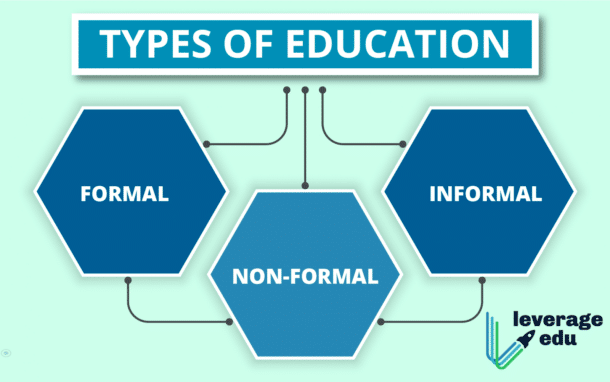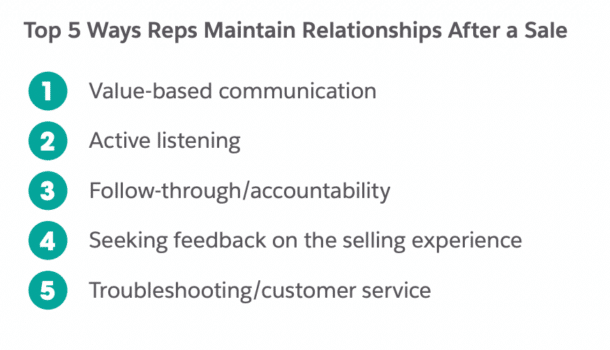The EdTech SaaS industry presents a promising future and a significant opportunity. This sector has been exploding with growth and is only expected to continue on an upward trend – through 2030, the EdTech market is expected to grow each year by 16.5%
However, increased growth also means increased competition when selling a product or service to educational institutions. To stand out, you need to deeply understand how your product meets stakeholder needs. Becoming an expert on the ins and outs of the nuances of selling to the widely varied needs of stakeholders in the education space is vital.
Between sales strategies, negotiation tactics, and building strong long-term relationships, Insivia shares our top tips to master selling in the EdTech SaaS space.
Understanding the Unique Landscape of EdTech SaaS Sales
In the fast-paced world of Software as a Service (SaaS) sales, the Education Technology (EdTech) sector stands apart. EdTech’s unique characteristics and stakeholders mean that traditional sales tactics often fall short.
To sell EdTech is to understand educational institutions. This understanding starts with knowing what type of impact they aim to make. SaaS selling often shows value through how much a solution can help generate revenue for a business. However, for selling in EdTech SaaS, the audience can have diverse goals. These goals could include a university aiming to increase endowment or a public school looking for a virtual classroom.
There are three key types of education, and within those, there are even more subsets – higher education, secondary, private, public, etc. Finding your niche on who benefits from your product within the education space will boost your sales results.

To succeed in EdTech SaaS sales, one must fully comprehend the landscape, the goals, the main players, and the distinctive features that define this industry.
Exploring the Distinct Features of the EdTech Industry
The EdTech industry sets itself apart from other sectors through a variety of attributes. The EdTech industry works with educational institutions, which operate very differently than traditional businesses. Between these institutions’ missions, their organizational makeup, and their financial sources, educational institutions are defined by several industry-specific characteristics.
- Complex Decision-Making Process: Selling to educational institutions involves navigating a complicated and bureaucratic decision-making process. Unlike other industries where decisions might be made by a single person or a small team, in education there are multiple parties with a seat at the table. Decisions often involve multiple stakeholders such as administrators, teachers, parents, and even students.
- Long Sales Cycle: The sales cycle in EdTech is often longer than the sales cycle in other sectors. Budgets need to be allocated, approvals need to be secured, and pilot programs often need to be implemented before a sale is made.
- Social Impact: More so than in other industries, the products and services in EdTech have the potential to significantly impact society. This adds an additional layer of responsibility and scrutiny to the sales process.
Understanding the Key Stakeholders in EdTech Sales
In EdTech sales, sales teams must have a comprehensive grasp on the organizational structure of each individual educational institution. Successful sales in the EdTech sector require understanding and engaging with a wide range of stakeholders that each hold diverse needs and interests:
- Administrators: These are the people who make the final decisions. Understanding their pain points, their goals, and their constraints is crucial to making a successful sale.
- Teachers: Teachers are the end users of many EdTech products. Their buy-in can be critical to the success of a sale. Demonstrating how your product can make their lives easier and improve student outcomes helps teachers see the value of your product.
- Students and Parents: Students are often the ultimate end users and consumers of EdTech products, and parents can be powerful advocates. Highlighting how your product can enhance learning outcomes can be a powerful selling point.
These stakeholders and their goals can also vary depending on what type of educational institution you’re selling to, whether it’s a non-credit night class for working professionals, a technical school, or a private boarding school.
Why Traditional Sales Strategies May Fall Short in the EdTech Context
Given the particular characteristics and stakeholders in the EdTech industry, traditional sales strategies often fall short. Tactics that otherwise can help close deals in different industries cause educational institutions to run the other way. Some of these techniques that are often ineffective for in EdTech include:
- Don’t Engage in High-Pressure Tactics: Bullying doesn’t work. High-pressure sales tactics that might work in other industries can backfire in education. Education professionals are typically more interested in long-term partnerships than quick sales.
- Avoid a Product-Centric Approach: A product-centric approach that focuses on features and benefits may not resonate with education professionals who are more interested in outcomes and impact.
- Stay Away from a Short-Term Focus: The long sales cycle and complex decision-making process in education require a long-term approach to sales. Short-term strategies focused on quick wins may not be effective.
- Find Their Desired ROI: Depending on the needs of the educational institution you’re selling to, the ROI of working with you should not just be shown as “how much money you’ll earn”. Instead, if working with a public K-12 school for example, show how many taxpayer dollars could be saved with your solution and put towards other needs that the school has.
Navigating the EdTech SaaS sales landscape requires a deep understanding of the industry, its stakeholders, and the value that your product brings to the table. By focusing on building relationships and demonstrating impact, you can position yourself as a trusted advisor and partner in the education sector.
Mastering the Art of Negotiation in EdTech Sales
As a sales professional in the EdTech SaaS industry, you are not just selling a product; you are partnering with educational institutions to help them leverage technology to meet their educational goals. This partnership begins with negotiation – a delicate art that requires tact, strategy, and a deep understanding of the education sector.
What makes a well-crafted negotiation necessary is that a firm negotiation strategy doesn’t just help close deals. It sets the foundation for what can be a positive and long-term partnership. In this section, we will delve into the specifics of effective negotiation techniques and provide tips on how to turn prospects into partners.
Understanding the Importance of Research and Preparation
Before entering any negotiation, doing your homework is key. Research the institution you are negotiating with, understand their needs, challenges, and goals. This information will not only help you tailor your pitch but also help you anticipate their concerns and objections.
- What to research about educational institutions prior to negotiation:
-
-
- Their current tech stack
- Their budget
- Their strategic plan for the future
-
- How to prepare to negotiate:
-
- Understand your product inside and out
- Be ready to explain how your product can help the institution achieve its goals, improve its processes, and provide good value for money.
- Remember, you are not just selling a product; you are selling a solution to their problems.
Strategies for Effective Negotiation with Educational Institutions
Once you’re prepared to negotiate, strategies you’re bringing to the table should reflect your knowledge of the educational institution itself. Aim to show value, not to merely sell. By showing your understanding of their needs and your focus on mutually beneficial outcomes, you begin to build trust and show how your solution satisfies an unmet need.
- Focus on creating a win-win situation:
-
-
- Instead of trying to push your agenda, understand the needs of the institution and find ways to meet them.
- Show them how your product can help them achieve their goals, and be open to making adjustments to meet their specific needs.
-
- Be patient and persistent:
-
- Negotiating with educational institutions can take time due to their bureaucratic nature.
- Instead of rushing the process, take the time to build relationships, address their concerns, and prove your credibility as a trusted advisor.
Tips for Closing Deals in the EdTech Industry
35% of salespeople find closing to be the most difficult piece of the sales puzzle. When closing a deal, there are a couple key tips to ensure you drive the sale home. At time of closing, it’s the perfect time to show your new partner that they’re in good hands. After all, closing a deal is just the beginning of the relationship. The closing process is what will set the tone for the future of the partnership.
- Emphasize Value:
-
-
- Focus on the long-term benefits, the cost savings, and the improved efficiency your product offers.
- Make sure to address all their concerns and reassure them of your ongoing support and partnership.
-
- Focus on Long-Term Relationship Building:
-
- Stay engaged with the institution, provide excellent customer service, and continuously show them how your product can help them achieve their goals.
- This will not only ensure their satisfaction but also open doors for future business opportunities.
Overcoming Objections in EdTech Sales
Navigating the landscape of objections is a valuable step in the EdTech SaaS sales process. Objections can often feel like roadblocks, but when handled with empathy and understanding, they can be transformed into opportunities for deeper conversations and stronger relationships.
In this section, we’ll explore common objections in EdTech sales and share practical advice on how to address and overcome them.
Identifying Common Objections in EdTech Sales
Recognizing the common objections in the EdTech industry is the first step to overcoming them. By recognizing these issues ahead of time, you can better highlight how you can assist. Below are a few commonly encountered objections:
- EdTech Sales Objection #1: Concerns about cost
- Budget constraints are often a major concern for educational institutions.
- Solution: It’s essential to demonstrate the long-term value and ROI of your product to justify the investment.
- EdTech Sales Objection #2: Resistance to change
- Institutions might be hesitant to adopt new technology due to concerns about disruption or lack of technical skills.
- Solution: Ease these fears by highlighting user-friendly features, comprehensive training, and ongoing support.
- EdTech Sales Objection #3: Unclear value proposition
- If the benefits of your product aren’t immediately clear, you’ll face objections.
- Solution: Always tailor your pitch to the specific needs and goals of the institution.
Practical Advice on How to Address and Overcome These Objections
Once you’ve identified potential objections, you can harness this knowledge to strategize on how to overcome them. With a better gauge of what stalls educational institutions from making the leap to partner with EdTech businesses, you can help create solutions. Here are some practical tips to consider:
- Highlight the value: Clearly articulate the unparalleled benefits of your product. Provide concrete examples of how it can help the institution achieve its goals.
- Offer a flexible pricing model: If budget is a concern, consider offering flexible payment options or a scalable pricing model to accommodate different budget levels.
- Provide excellent customer support: By offering comprehensive training and excellent customer support, you can alleviate concerns about the technical aspects of your product.
The Importance of Empathy and Understanding in Handling Objections
When dealing with objections, you must handle them with empathy and understanding. Objections come from a place of aiming to conserve budget that can be hard to come by, as well as wanting to protect students’ best interests. Taking the extra time to show that concerns are heard and addressed has a multitude of benefits:
- Build trust: By showing that you understand their concerns, you foster trust and rapport, which are pillars to building lasting relationships.
- Facilitate open dialogue: When you respond to objections with empathy, you encourage an open dialogue where both parties can express their needs and concerns.
- Strengthen your value proposition: Understanding the institutions’ pain points and needs allows you to tailor your value proposition more effectively, making your product or service more attractive.
Building Long-Term Relationships with Educational Institutions
In the world of EdTech SaaS sales, closing a deal is just the beginning. The real value lies in nurturing these initial transactions into long-lasting partnerships that continue to provide value for both parties. This section will delve into the strategies you can employ to build and maintain strong relationships with educational institutions, with an emphasis on becoming a trusted advisor and partner.
Understanding the Needs and Goals of Educational Institutions
The first step in building a long-term business relationship is understanding the unique needs and goals of the educational institution you’re working with. Ideally, this process began during the early stages of selling, but the curiosity and focus on goal impact should continue after closing.
As with all organizations, educational institutions have shifting priorities and concerns. Staying on top of any needs and fluctuations keeps you invaluable. This process involves:
- Research
-
-
- Conducting thorough research to understand the institution’s mission, goals, and the challenges they face. This will help you provide solutions that are tailored to their specific needs.
-
- Ongoing communication
-
-
- Engaging in regular communication with the institution to keep abreast of any changes in their needs or goals. This will allow you to adapt your services accordingly and continue providing value.
-
- Investment in their success
-
- Showing genuine interest in the institution’s success. This demonstrates your commitment to the partnership and builds trust.
Strategies for Providing Ongoing Support and Value
Keeping a business relationship going strong with your partners means staying close. It’s crucial to provide ongoing support and continually demonstrate the value of your solution. Staying close to your partners throughout the many stages of the relationship ensures both parties are still getting the desired outcome. Here are some strategies to keep providing value:
- Regular support and training
-
-
- Offering regular training and support ensures the institution can fully make the most of your solution. This not only helps them achieve their goals but also establishes you as a reliable and helpful partner.
-
- Ongoing solution updates and improvements
-
-
- Provide regular updates and improvements to your solution based on the institution’s feedback and evolving needs. This shows that you’re committed to their success and are continually working to provide value.
-
- Be there when they need you
-
- Going above and beyond to assist the institution in times of need makes a huge impact. This could involve providing additional support during a crisis or assisting with unexpected challenges. Such actions further solidify your position as a trusted advisor and partner.’
According to SmartKarrot, the majority of startups hold a 60% churn rate, particularly for startups with less revenue. Getting ahead of customer needs and being an essential partner helps create insurance that your customers are more likely to stay.

Churn rate data from SmartKarrot
The Role of Trust and Reliability in Maintaining Long-Term Relationships
Trust and reliability are the cornerstones of any long-term relationship. Partnerships between an EdTech SaaS company and an educational institution are no different. As time goes on, staying proactive and showing continued passion and enthusiasm for the educational institution’s mission and goals keeps the relationship sturdy. In the context of EdTech SaaS sales, this means:
- Always delivering
-
-
- Delivering on your promises and meeting expectations consistently. This builds trust and shows the institution that they can rely on you.
-
- Being transparent
-
-
- Being open, clear, and honest, especially when things go wrong. This shows the institution that you value their partnership and are willing to take responsibility for your actions.
-
- Being responsive
-
- Always be available and receptive when the institution needs you. This level of assistance reassures them that you’re there to support them and are committed to the partnership.
Studies show customers act when trust is lost, and won’t hesitate to end a business relationship and share the word. Keeping trust as a service and sales tool ultimately leads to better financial results for your product.
Salesforce’s latest State of Sales report underlines the importance of trust in an ongoing business partnership. The top 5 tactics to maintain a relationship post-sale help show empathy and accountability.

Sales relationship tactics from the Salesforce State of Sales report
Putting EdTech SaaS Sales Strategies into Practice
Mastering EdTech SaaS sales is so much more than selling. It’s doing the work before, during, and after the sale to create a mutually beneficial relationship between your product and an educational institution.
By understanding the needs and goals of educational institutions, providing ongoing support and value, and fostering trust and reliability, you can build and maintain strong, long-term relationships that drive positive impact for both parties.
Looking for help getting started? Contact Insivia to learn more!